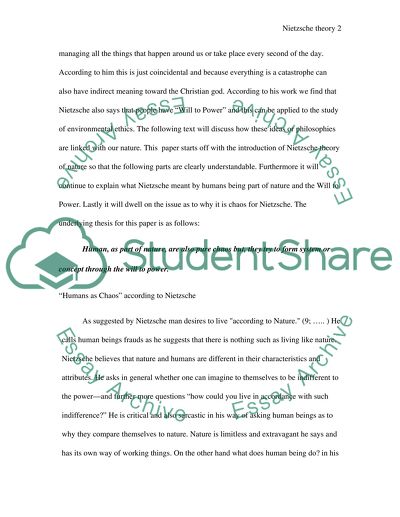Cite this document
(“Nietzsche's theory of nature Essay Example | Topics and Well Written Essays - 2000 words”, n.d.)
Nietzsche's theory of nature Essay Example | Topics and Well Written Essays - 2000 words. Retrieved from https://studentshare.org/philosophy/1566633-nietzsches-theory-of-nature
Nietzsche's theory of nature Essay Example | Topics and Well Written Essays - 2000 words. Retrieved from https://studentshare.org/philosophy/1566633-nietzsches-theory-of-nature
(Nietzsche'S Theory of Nature Essay Example | Topics and Well Written Essays - 2000 Words)
Nietzsche'S Theory of Nature Essay Example | Topics and Well Written Essays - 2000 Words. https://studentshare.org/philosophy/1566633-nietzsches-theory-of-nature.
Nietzsche'S Theory of Nature Essay Example | Topics and Well Written Essays - 2000 Words. https://studentshare.org/philosophy/1566633-nietzsches-theory-of-nature.
“Nietzsche'S Theory of Nature Essay Example | Topics and Well Written Essays - 2000 Words”, n.d. https://studentshare.org/philosophy/1566633-nietzsches-theory-of-nature.


